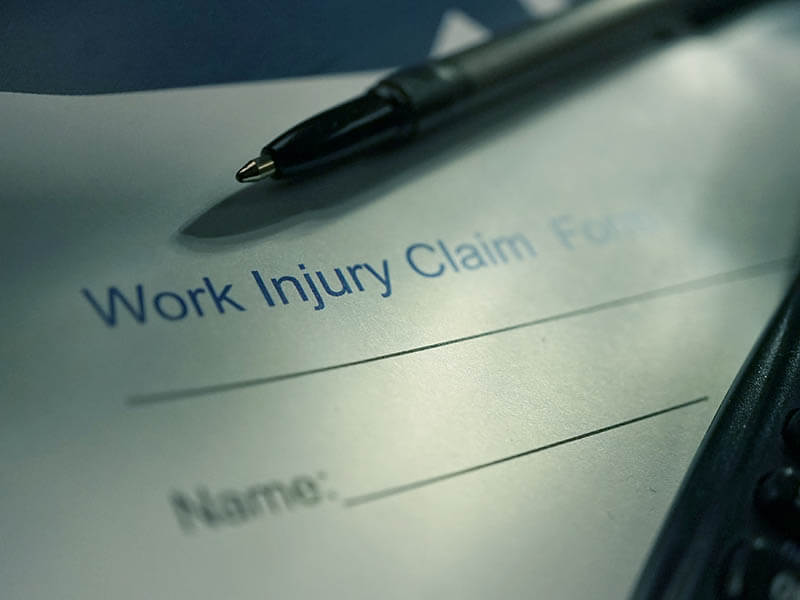HB 23-1076 Workers' Compensation
Effective Monday, August 7, 2023
HB 23-1076 contains nine sections total. Sections one through seven are substantive; section eight is the appropriation, and section nine is the effective date. The bill takes effect on the day following expiration of the 90 -day period after adjournment of the general assembly. So, if interested, the public would have from May 8, 2023, sine die, to Sunday August 6, 2023, to file a referendum petition, which is unlikely here. Thus, all sections of the bill would be effective on the 91st day, or Monday August 7, 2023.
Section five of the bill amends§ 8-42-107.2(3)(b) and (5)(a), the Division IME process. As stated above, the changes would be effective on Monday, August 7, 2023. The bill does not address whether existing claims are affected or if it is based on the date of injury of the claim. Our best guess is that this would be the later and/or addressed during the Director’s rulemaking.
The only bill section which is procedural, is section six which amends § 8-43-207.5, by adding (2)(b)(X). The new section states that disputes regarding indigency or medical records, submitted in anticipation of an IME, will be handled by the Prehearing Unit. Medical record disputes may be related to content, format, relevancy, duplicative records, or costs. This change is procedural or will affect all claims. The other substantive sections, sections one through five, seven, and eight, are not defined or otherwise stated as procedural and would likely pertain to the date of injury.
General information: House Bill 23-1076 sections with corresponding statutory citations are below. This bill had a considerable fiscal note; approximately $730,000 for Fiscal Year 24-25, primarily due to hiring around 7 new employees.
- Section 1 amends § 8-41-301(2)(b)
- Mental impairment is limited to 36 weeks.
- Mental impairment was formerly limited to 12 weeks.
- Section 2 amends § 8-42-101(1)(b)
- The claimant does not have to petition for device replacement of any artificial member, such as, glasses, hearing aid, brace, dentures, or other external prosthetic device.
- Section 3 amends § 8-42-105(5)
- Parenthesis (5), TTD – hearings, is new.
- 45 days after insurer terminates claimant’s TTD pursuant to § 8-42-105(3)(c), claimant may file an application for an expedited hearing on any of the following issues:
- Who is the attending physician?
- Whether the attending physician gave claimant a written release to return to regular employment.
- Is there is a difference of opinion between authorized treating medical providers whether claimant should be released to regular employment?
- If an ALJ finds there is a difference of opinion between authorized treating medical providers
- claimant has the burden to show by a preponderance of the evidence that as a proximate result of the claimed injury, claimant is unable to return to regular duty.
- If claimant meets this burden, an ALJ must reinstate the employees terminated TTD back to the date of termination.
- Section 4 amends § 8-42-107(8)(f)
- If an authorized treating physician recommends medical benefits post MMI, and there is no contrary medical opinion on the record, Respondents must, in the FAL admit liability for necessary medical benefits by an ATP which are not limited to any specific medical treatment.
- Section 5 amends § 8-42-107.2(3)(b) and (5)(a)
- Upon selection of the IME, if Respondents fail to timely submit all relevant medical records in its possession, claimant may request the Division cancel the IME or claimant may proceed and submit copies of relevant medical records that the claimant has available.
- The Division will promulgate rules consistent with this section to determine allocation of costs.
- The requesting party must pay the costs of an IME at least ten days before the examination.
- If there is a dispute re indigency, amount or allocation of costs, to include format, content, volume, relevance, or duplicative medical records submitted to the IME, a party may request a prehearing conference with the Division.
- Section 6 amends § 8-43-207.5 and adds (2)(b)(X)
- Disputes regarding indigency and medical record disputes submitted to an IME (content, format, relevant, duplicative costs) will be handled by the Prehearing Unit.
- This amendment is procedural.
- Section 7 amends § 8-43-406(1)
- Increases reasonable claimant’s counsel contingency fees.
- A contingency fee is unreasonable if over 25%
- Formerly 20%
This legislative summary is provided by Pollart Miller Attorney Jenny A. Moore. For more information you can reach Jenny at 720.488.9586.
